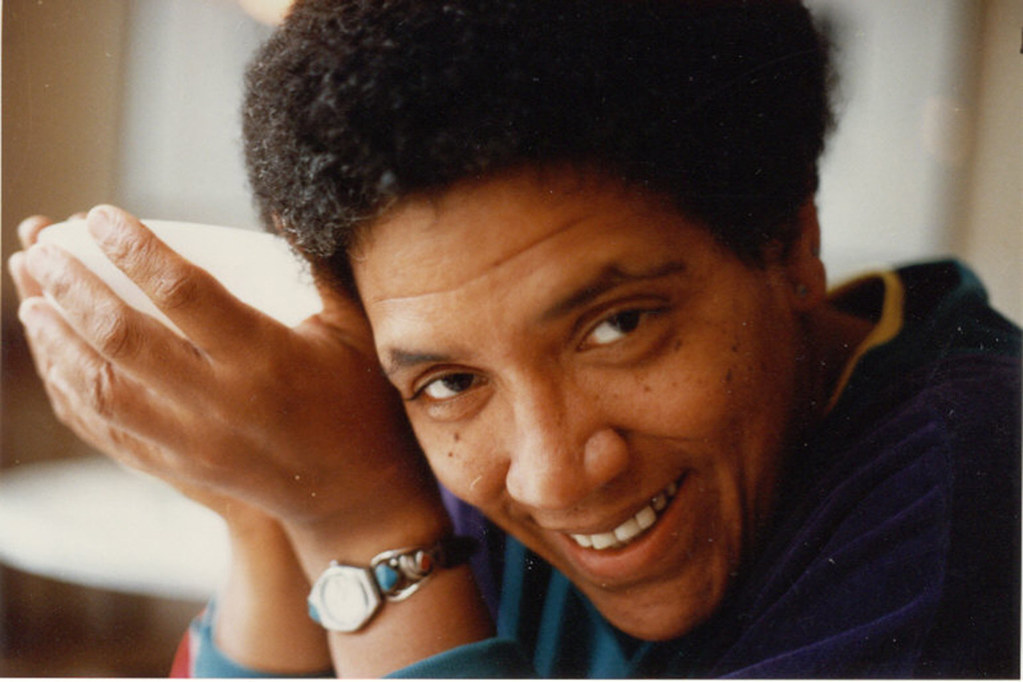What would Audre Lorde say about the state of our world right now? How would she feel about what our world is going through? Those are questions some of Lorde’s readers may be thinking, as we go through this global pandemic due to Covid-19. This global pandemic has forced people to unexpectantly change their everyday lifestyles and social distance themselves from loved ones during this uncertain time. For some people that can be troubling and can challenge their mental health. In this blog, I show how Lorde’s Zami offers crucial insights about the importance of community in order to survive social isolation. Lorde’s work shows us that having a network of people that we can rely on or share ideas and feelings is crucial in order to feel less lonely or sad during this time.
Throughout the twentieth century, Lorde faced racism, sexism, and homophobia which threatened her life and her ability to survive. Lorde’s biomythagraphy Zami describes the racism that she faced from an early age. She states, “Supposedly, it was because we wouldn’t behave, but actually, it was because beneath the neat visor of the museum guards cap, she could see pale blue eyes staring at her and her children as if we were a bad smell, and this frighten her. This was a situation she can’t control” (12). She was judged for being black even though it was something that she completely couldn’t control. Lorde’s mother tried to shield her from the racism that she would face. Her mother couldn’t shield her completely though Lorde could see the looks on people’s faces. The looks on these people’s faces showed Lorde that she was different, but she didn’t know how until she was an adult. Lorde states “The overwhelming racism of so many of the faculty, including the ones upon whom I had my worst schoolgirl crushes. How little I settled for in the way of human contact, compared to what I was conscious of wanting” (82). Lorde could try all she wanted to prove her teachers wrong, but it wouldn’t work. Her teachers would always think that what she said in her work was not good, or not enough. Lorde had to push past their thoughts on her work though. She had to work hard and prove that she could do the work and that she would be good at it.
Lorde throughout her life formed a community with women who she met through sharing her poetry. During Lorde’s time in high school, Lorde formed a community with someone women that she called the branded. Lorde writes “At the time, suffering was clearly what we did best. We became the branded because we learned how to make a virtue out of it” (82). Lorde had a lot in common with these because they all faced some sort of oppression. Lorde was able to express her feelings and thoughts with these women which ultimately helped her get through the pain of being oppressed and judged by other people. She states, “…I met young women my own age, Black and white, who spoke a language I could usually understand and reply within. I met girls with whom I could share feelings and dreams and ideas without fear. I found adults who tolerated my feelings and ideas without punishment for insolence, and even a few who respected and admired them” (82). Finding women that Lorde could talk to about her feelings and share her ideas about poetry with was vital for her survival because these women allowed Lorde to freely be herself. She could share any of her thoughts that she was having with these women without feeling judged. These women gave Lorde some sense of security because she was able to open about her feelings and the oppression that she had suffered.
The current situation that our world is going through due to Covid-19 is not identical to the situations that Lorde encountered. The crisis we are living through can’t compare to the oppressions that Lorde faced, but Lorde’s ideas are important even today. Lorde has always stressed that having a community of people is important because it allows us to share our honest feelings or thoughts with people. In the time we are living in right now it is easy to feel isolated or sad, but it doesn’t have to be that way. Kwan writes, “I wasn’t, though, nor am I now. Coronavirus grief is already a vast, monstrous grief, its reach and breadth expanding daily. It’s also a collective grief, a worldwide loss that — physically isolated though many of us have to be — a lot of other people are, in one way or another, also mourning. I hope, in this extraordinarily difficult time, to be better than I’ve been at letting myself mourn. I’ll start at the beginning: This is hard. I hurt. If you’re hurting, too, you’re not alone” (The New York Times). It is important to remember that we are never alone because there is a large number of people all around the world that are all having to isolate themselves from loved ones. We all are also feeling sad or disconnected because of it. Lorde would want us to put ourselves out there and express our feelings to communities of people where we could openly share our feelings. She would also want us to share our feelings with people who can relate to us. Her work helps to remind us that there is hope out there.
Lorde was an incredible poet and teacher. She faced a lot of oppression in her life that could have easily quick and let her oppressors win. She showed strength through her work. Today, strength is what Lorde would want is to have during this difficult time, even when we think there is no hope. The truth is there is always hope.
Works cited
Kwan, R. O. (2020, April 9). Trouble Focusing? Not Sleeping? You May Be Grieving. Retrieved May 1, 2020, from https://www.nytimes.com/2020/04/09/opinion/sunday/coronavirus-grief-mental-health.html
Lorde, Audre. Zami: A New Spelling of My Name. Crossing Press.


Hey Katie, I really loved your post. I really like the quote “I’ll start at the beginning: This is hard. I hurt. If you’re hurting, too, you’re not alone” (The New York Times) it really speaks to how we should come together and help each other, not physically (cause sickness), but emotionally.
Hey Katie, I enjoyed your post because it was very informative. I loved how you brought Lorde’s works into our current situation and I think you are absolutely right, Lorde would want us to remain strong and resilient throughout this period.
Hi Katie, I loved reading your blog post! I loved the quote, ““Supposedly, it was because we wouldn’t behave, but actually, it was because beneath the neat visor of the museum guards cap, she could see pale blue eyes staring at her and her children as if we were a bad smell, and this frighten her. This was a situation she can’t control” (12). I think this really shows how we can not control what is going on in the world around us, but we can make the best of it and do what we can to survive it.
Hi Katie! I love your blog post! Your connection to the worldwide pandemic going on right now with Lorde’s hardships is very important. We all need to remember the strength during this time and know Lorde would have shared her wise wisdom through this situation, just as she did with her struggles of oppression.